If you were trying to get a sense of the experiences of former Muslims, you might have a tough time finding people willing to talk. Many still live in fear. Many prefer to remain anonymous. But if there’s one group with access to hundreds of people who left Islam, it’s Ex-Muslims of North America. And that group, working with researchers at George Mason University, have just released an incredible survey of over 550 former Muslims currently living in the United States and Canada.
That comes with its own limitations. These are members of a group for ex-Muslims, not just casual apostates, for example. They’re more internet savvy. They’re often coming from very religious homes. They’re younger. But it’s still useful to learn what that group’s experiences are like — if for no other reason than to show Muslims with religious doubts that they’re not alone no matter what their own backgrounds are.
Here are a few of the results that stood out to me:
1) When it comes to politics, these ex-Muslims are overwhelmingly liberal:
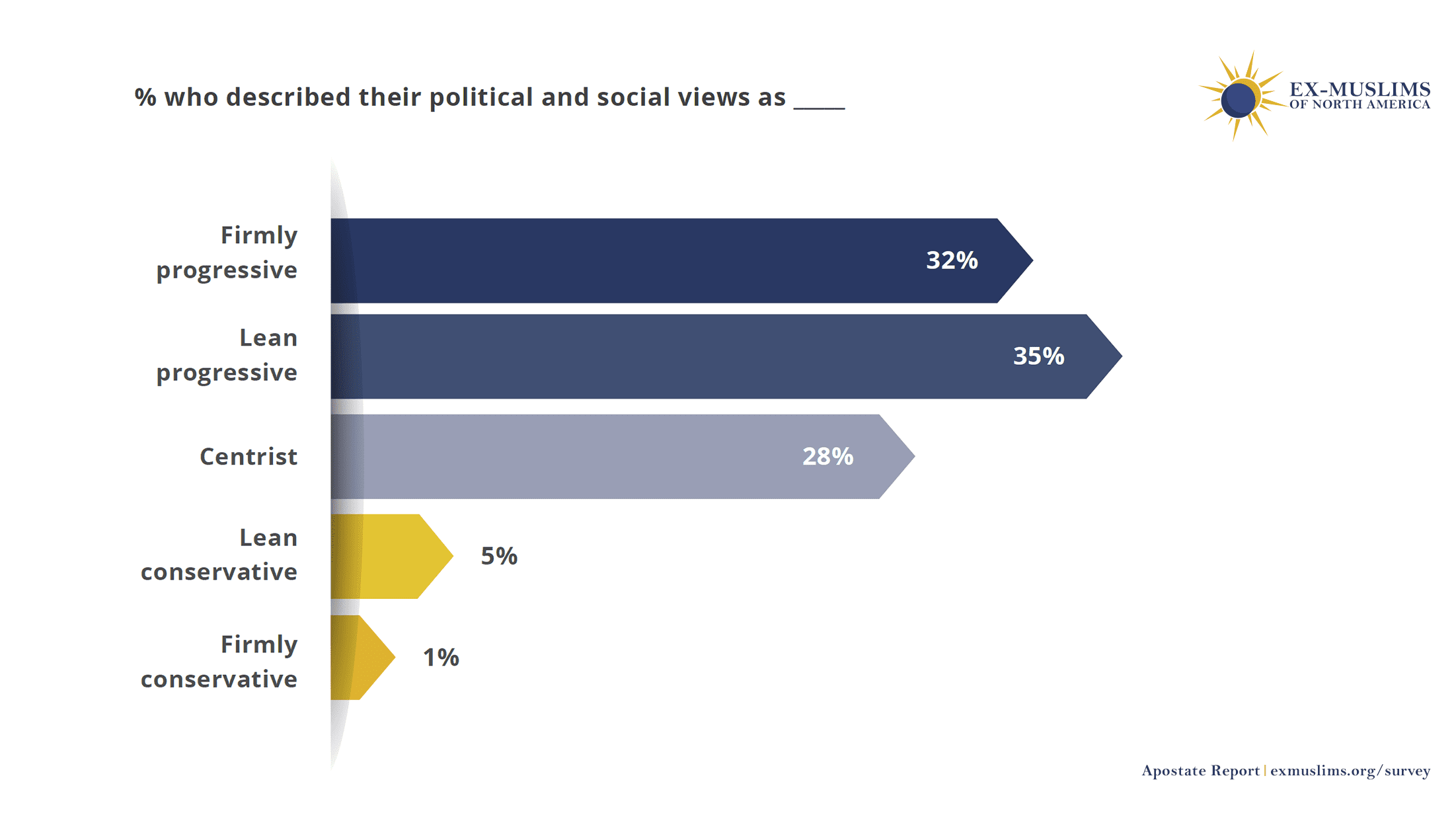
32% were firmly progressive and 35% leaned progressive. Another significant portion were politically centrist, 28%. Only 5% leaned toward a conservative stance and only 1% described themselves as firmly conservative.
Between the Republican Party’s anti-brown-people sentiments and their general dislike of people without faith, that shouldn’t surprise us. Though I thought the number might be higher given how much condemnation of Islam you find with the GOP and many “New Atheist” figureheads. So even though ex-Muslims and many Republicans frequently criticize Islam, their shared views end there.
2) These ex-Muslims were all over the place when it comes to how devout they used to be:
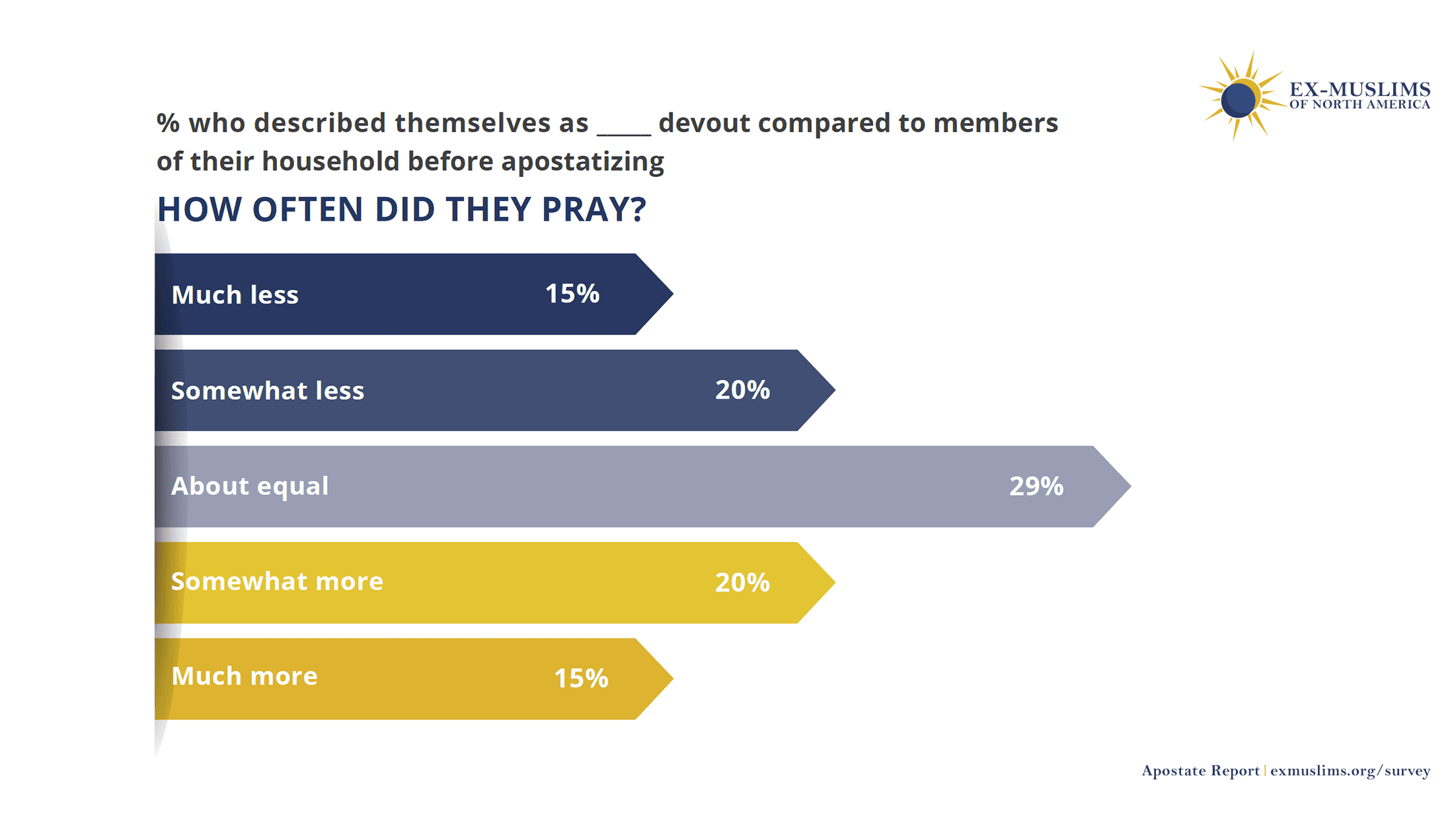
… respondents were asked: “In the household you were raised in, were you generally more or less devout in your faith than other family members of your generation?”
Responses were remarkably balanced. Nearly 30% fell in the middle, placing their former devoutness at similar levels as their family’s; about 20% each said they had been somewhat less and somewhat more devout; and about 15% each said they had been much less or much more devout.
I would’ve assumed most of the ex-Muslims were less devout than their family members, making it easier for them to tiptoe over the fence to apostasy. Nope! Many of them were more devout, which means that leap away from faith must have been even more difficult. (Imagine the courage that takes!)
3) It took many of these ex-Muslims years from doubting faith to finally leaving it:
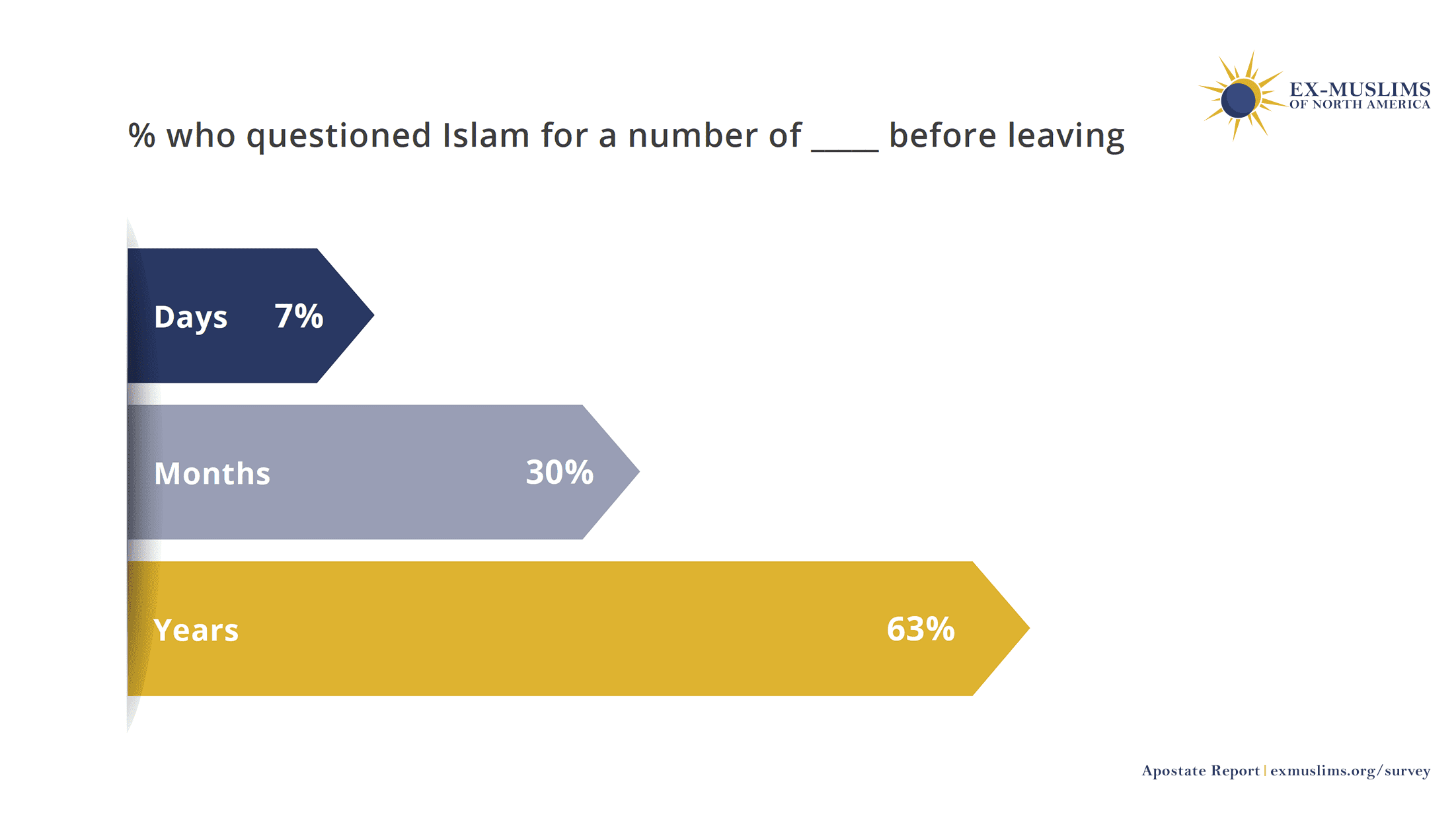
Respondents indicated that their apostasy was generally a lengthy process. A majority (63%) said it was a matter of years from when they first began to question the faith before they ultimately left. Thirty percent (30%) said it took months, and only 7% said it was a matter of days.
I would’ve guessed that the largest group here would be “months.” The fact that it took most of them “years” to transition means they lived with that doubt for an excruciating amount of time. It also suggests how many more obstacles they had to deal with; they’re not just turning their backs on religion. In some cases, they may be perceived to be turning their backs on family and culture, too.
4) These ex-Muslims left their faith for many of the same reasons as other non-believers:
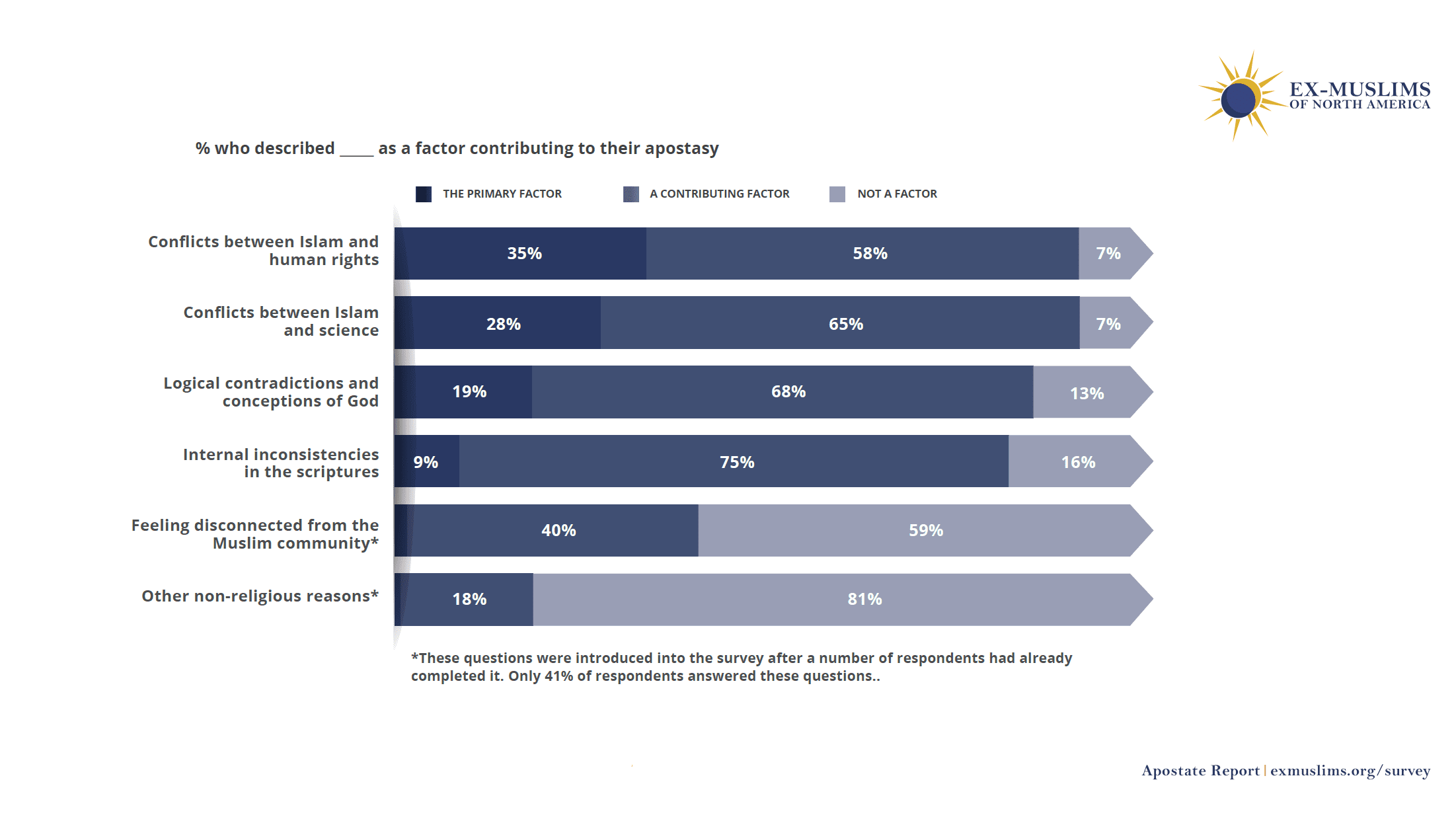
Islamic authorities and external commentators often assume that apostasy from Islam, rather than being a product of conscience, is primarily a result of the social stigma surrounding Islam, the at-times uncultured and uncouth “behaviors of those in authority” (i.e., imams), or trauma. These diagnoses, however, conflict with available data.
In many ways, these correspond with former Christians who left the faith due to witnessing hypocrisy and realizing that faith and facts weren’t compatible. But the same general arguments against religious belief and problems in their holy book also apply. That means reforming conservative branches of Islam likely wouldn’t change much in terms of keeping these people in the fold. Ultimately, the same problems that affect all religions affect Islam too.
5) Many ex-Muslims remain at least partially closeted for cultural/family reasons more than anything else:
This chart is for those who are “partially closeted”:
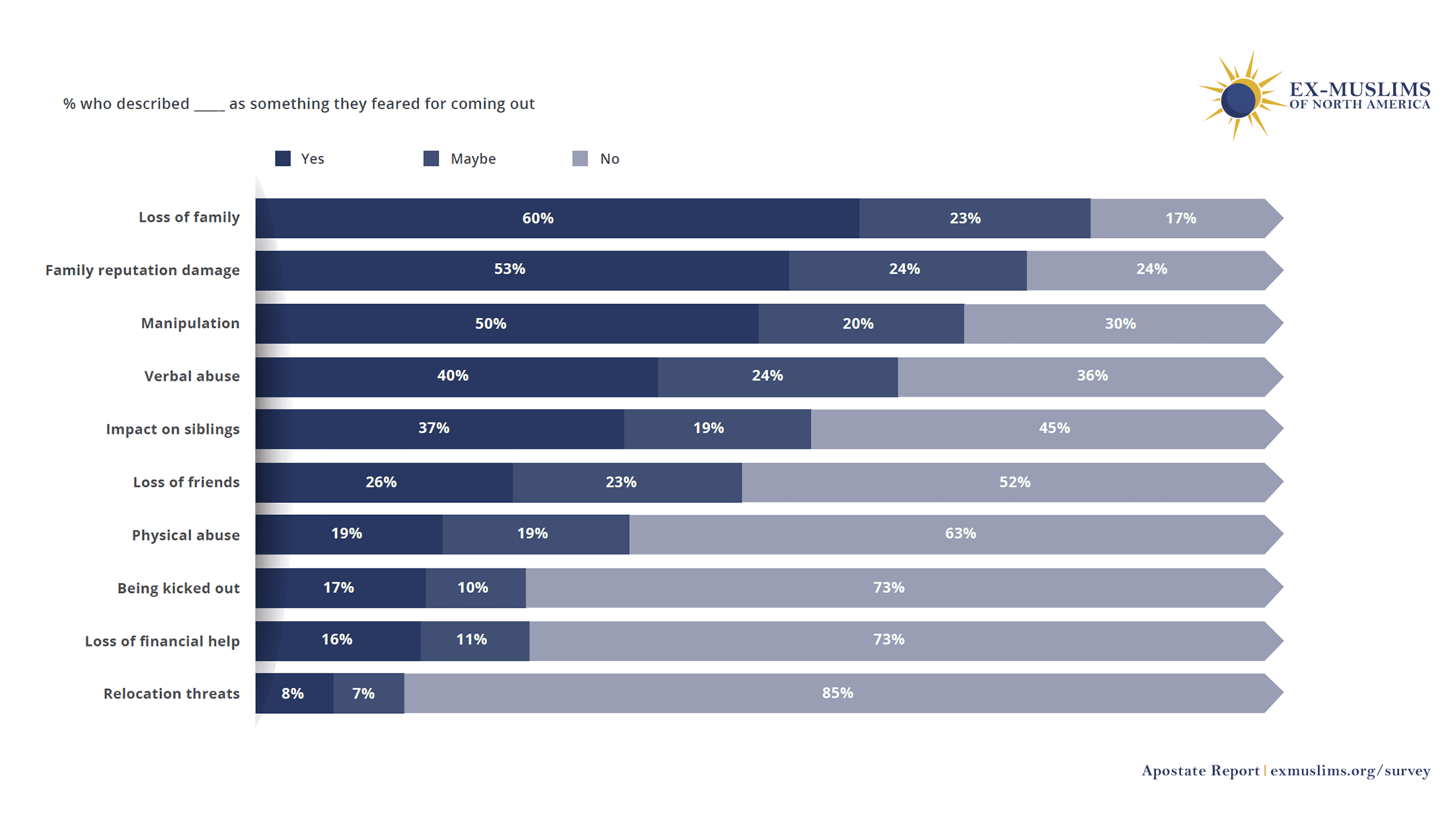
This chart is for those who are “fully closeted”:
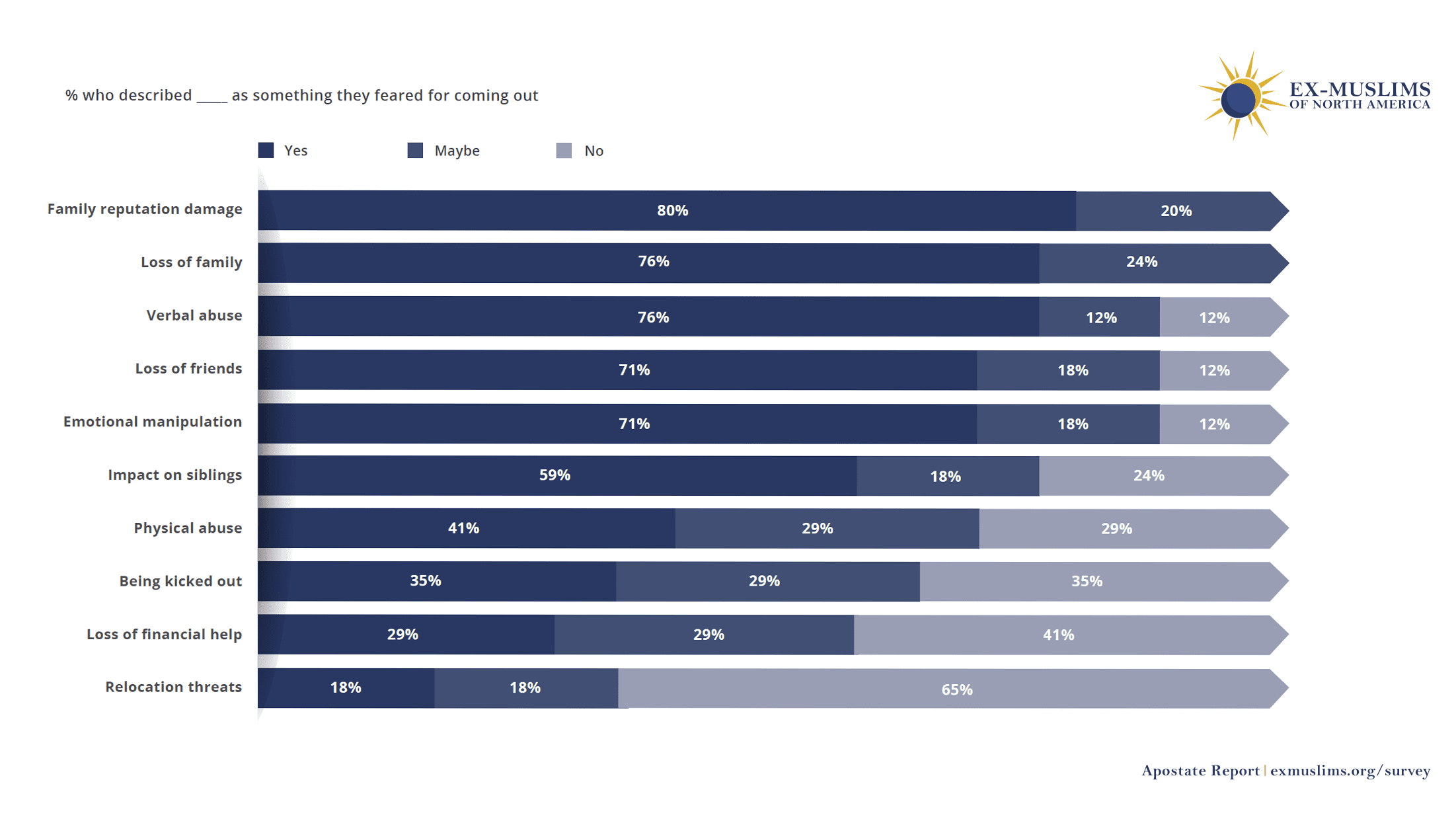
Respondents, it appears, do not fear physical and emotional abuse primarily from their friends, but rather from their families and especially their parents.
For these ex-Muslims, the worst thing about coming out of the closet is worrying about how your parents and relatives might respond. It’s not just dealing with your family or even losing some of them, it’s a fear of becoming a stain on their reputation. I would assume Christians in the U.S. don’t deal with that latter struggle in part because it’s not all that uncommon.
…
There’s so much more information in this study, but it provides an incredible starting point for researchers and sociologists who want to study this unique and relatively recent phenomenon of North American Muslims who decide to ditch their faith. Kudos to the EXMNA team and the George Mason researchers for putting this together:
“Through our work and advocacy, we have seen the distinct challenges ex-Muslims face first-hand,” said Sarah Haider, Executive Director of EXMNA. “In conducting this survey, we hope to shine light on a population that has for too long and to an unacceptable degree remained invisible.”
“Ex-Muslims stand at the intersection of half a hundred different narratives. We are villainized by our former religious community and misunderstood by many more. Having worked directly with apostates for years, the mission of portraying their thoughts and experiences honestly is a personal one to us,” said Muhammad Syed, President of EXMNA.
You can read the full report here.


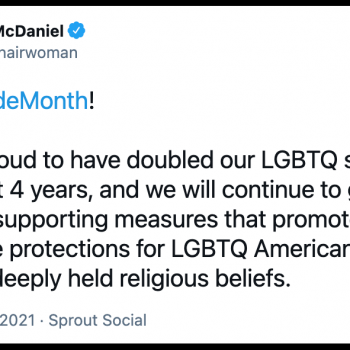

It’s Moving Day for the Friendly ..."
It’s Moving Day for the Friendly ..."
It’s Moving Day for the Friendly ..."
It’s Moving Day for the Friendly ..."